Science Talk
With our Science Talk blog, we hope to lift the lid on the black box that is the ICR: to show you inside our labs, to introduce you to a few of the people here who make the discoveries, and to allow them to tell some of the stories behind the science. We try to put our discoveries in a wider scientific context, and give an idea of how our science is actually done. We also give you the view from the ICR of important developments in the wider world of cancer research.
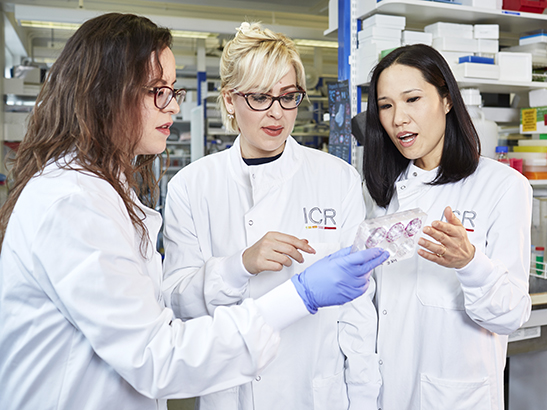
Supporting our students in these extraordinary times
Our Registrar and Director of Academic Services, Dr Barbara Pittam, discusses how we are supporting our students as they navigate the impact of Covid-19 pandemic.

“We don’t know how much time we’ve got left together” – Sally’s melanoma story
Scientists at The Institute of Cancer Research have helped discover and develop many targeted treatments that are enabling cancer patients to live longer and with a better quality of life. Sally Steadman-South explains what these research advances have meant for her and her family, and why she needs this work to continue.
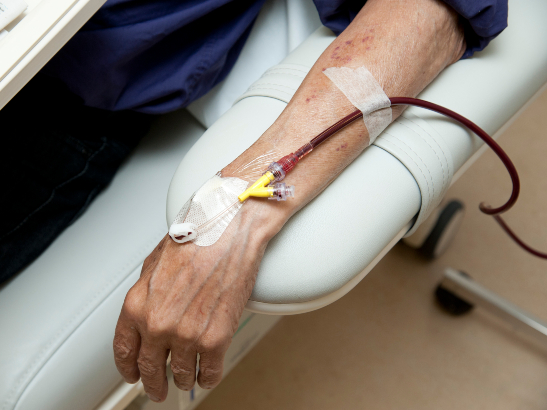
Cancer and COVID-19: how coronavirus has delayed vital cancer treatments
Henry French looks at how an Institute of Cancer Research-led study into the impact of the COVID-19 pandemic on people with cancer helped to start a national debate.
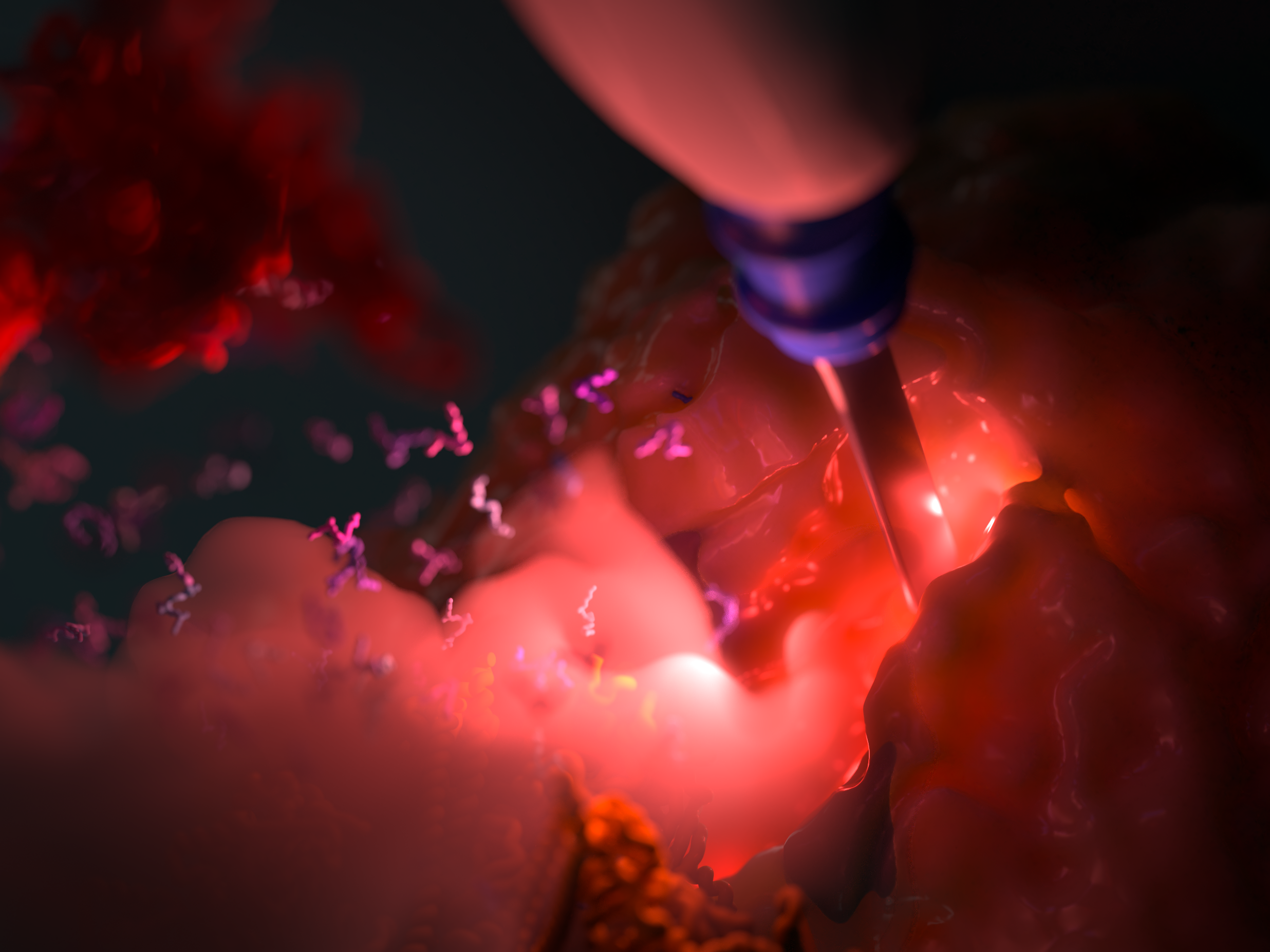
Can we target cancer’s metabolism by combining new drugs with a fat-free diet?
The ICR’s Dr George Poulogiannis and his team have revealed a metabolic weakness in cancer that could be targeted by combining new drugs with a diet free of omega-6 fats. Our Media Officer Diana Cano Bordajandi explains the research findings and their potential implications.
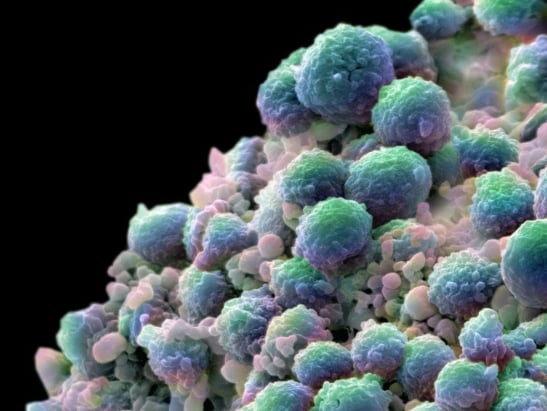
Men’s Health Week: How our researchers are transforming prostate cancer treatment
Professor Nick James, Chief Investigator of the STAMPEDE trial, joined the ICR in December 2019 and is one of our newest Team Leaders. Diana Cano Bordajandi met him to find out more about his current research and future plans, which will help us answer key questions on how to treat men with prostate cancer.

ASCO 2020: Cancer researchers get together at a distance
At a time when cancer researchers usually descend on Chicago for the biggest cancer conference of the year, Sarah Wells looks ahead at some of the highlights that researchers from The Institute of Cancer Research will be presenting at this year’s virtual edition of the ASCO Annual Meeting.

Cryo-electron microscopy – the coolest tech in the cancer toolkit
Cryo-electron microscopy is an exciting technology that could revolutionise drug design by seeing complex molecules in unprecedented detail. The Institute of Cancer Research has been at the vanguard in applying it to cancer – and now a new collaboration called the London Consortium for Cryo-EM (LonCEM) is using this super-cooled technique to learn more about the mechanisms of life and cancer.
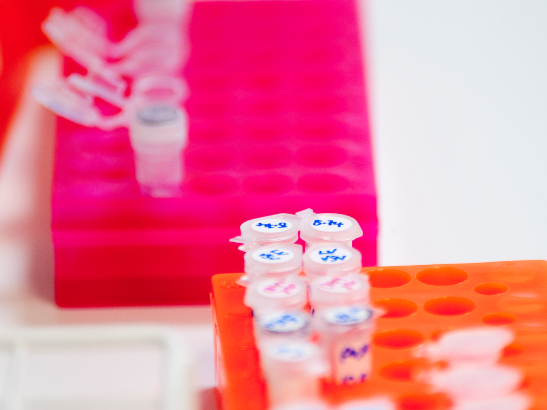
How we’re adapting a novel antibody technology to combat COVID-19
Henry French introduces a new project at the ICR, where cancer researchers are turning their expertise in the creation of high-affinity antibodies to new approaches to COVID-19 testing and treatment.
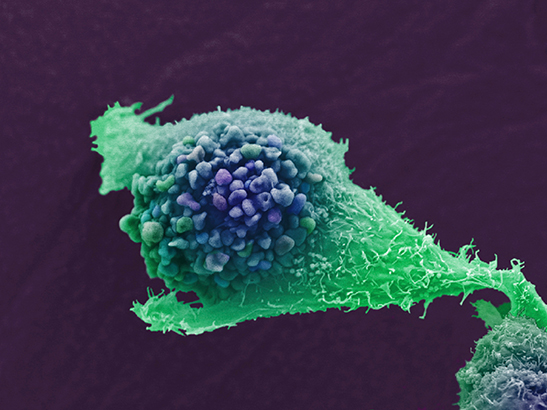
Prostate Cancer Awareness Month 2020: Immunotherapy, state-of-the-art radiotherapy, olaparib and PSA screening
March is Prostate Cancer Awareness Month. Web Editor Dave Morgan reviews four recent news stories covering different types of prostate cancer research taking place at The Institute of Cancer Research.

Will I see them graduate? One patient’s perspective on life with advanced breast cancer
Maureen is 56 and is living with advanced, incurable breast cancer. Before the outbreak of coronavirus, she wrote a blog post about why she’s making the most of the life she has now. This is a very difficult time for many, but here at the ICR we’re doing everything we can to ensure our life-saving work continues, so that we can give people like Maureen more time to spend with their loved ones.

Living with Lynch syndrome: Cara’s story
Research carried out by The Institute of Cancer Research, London, into cancer susceptibility genes has transformed our understanding of the inheritance of cancer risk. Genetic information can be used to help people with cancer and their families by informing them about their risk and guiding decisions over personalised cancer treatment. Cara Hoofe was diagnosed with bowel cancer in 2016. She has the inherited condition Lynch syndrome which means she had an 80% chance of developing bowel cancer and has a higher risk of developing womb and ovarian cancer. Here she explains how living with Lynch syndrome has changed her life.

“My treatment has given me a new lease of life” – Rob’s prostate cancer story
Hundreds of thousands of men with prostate cancer across the world are now able to live longer and with a better quality of life, thanks to abiraterone. Discovered and developed by The Institute of Cancer Research, the drug was the first treatment shown to be effective in patients with advanced prostate cancer. Rob Lester is one of those patients, and has been on abiraterone for around 8 years.

Weighing in on breast cancer risk – considering the effect of weight gain before the menopause
Obesity is known to be linked to cancer risk, but new research shows that weight gain is linked to a *lower* risk of breast cancer among women before the menopause. In this blog post, Joanne Duffy takes a closer look at the findings and explains how this contributes to our understanding of breast cancer risk factors.
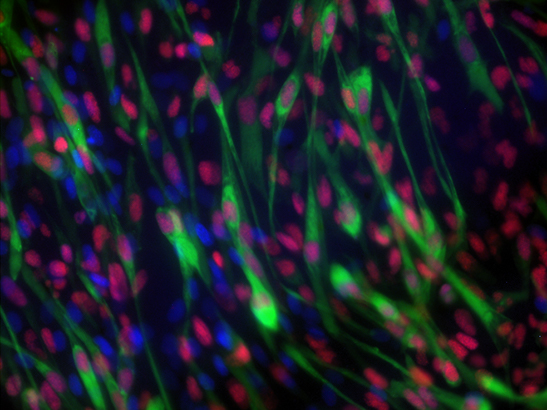
Small numbers, big impact: the unique challenges of studying rare cancers
New results from an ICR-led clinical trial are set to change the outlook for patients with a rare form of kidney cancer. Sarah Wells takes a look at some of the main challenges in studying rare cancers, and how the ICR’s researchers are going about making discoveries to improve the outlook for the one in five cancer patients with a rare cancer.
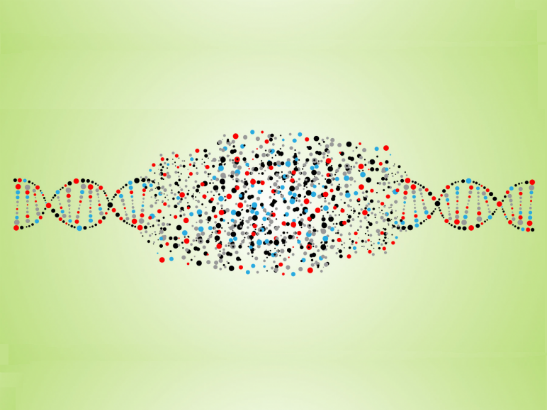
How genomics is transforming cancer treatment
Scientists from The Institute of Cancer Research, London, gathered recently at this year’s Festival of Genomics. Diana Cano Bordajandi, Media Officer at The Institute of Cancer Research, reports on the themes that ran through the conference.
.jpg?sfvrsn=62773399_2)
Ageing, cancer, and evolution – what Darwin’s great theory of life means for two unavoidable aspects of living
To celebrate Darwin Day, The Institute of Cancer Research invited world-leading expert on the biology of ageing, Professor Dame Linda Partridge, to talk about how ageing stems from evolutionary processes, and what it means for diseases like cancer.

International Day of Women and Girls in Science 2020
To celebrate International Day of Women and Girls in Science this year, we're sharing some advice from our scientists about pursuing a career in research.
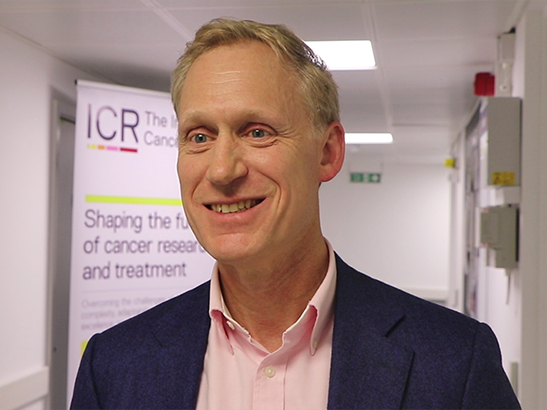
AstraZeneca’s Tim Eisen on the importance of collaborations in cancer research
ICR alumnus Professor Tim Eisen is now Head of Oncology Early Clinical Development at AstraZeneca. We caught up with him at a recent event where he shared his career advice and thoughts about working in industry.
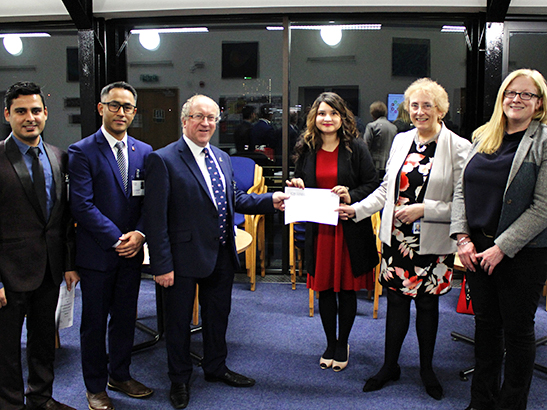
World Cancer Day: how the ICR is building expertise in cancer research in Nepal
Our researchers have been working with oncologists in Nepal since 2017 to share their expertise, and improve research and cancer care in the country.

What’s coming for cancer in the 2020s
We’ve learned a lot about cancer in the last decade, with survival rates better now than ever before. Our Policy Adviser, Roya Ziaie, takes a look at what might be in store over the next ten years in an ever-changing field.